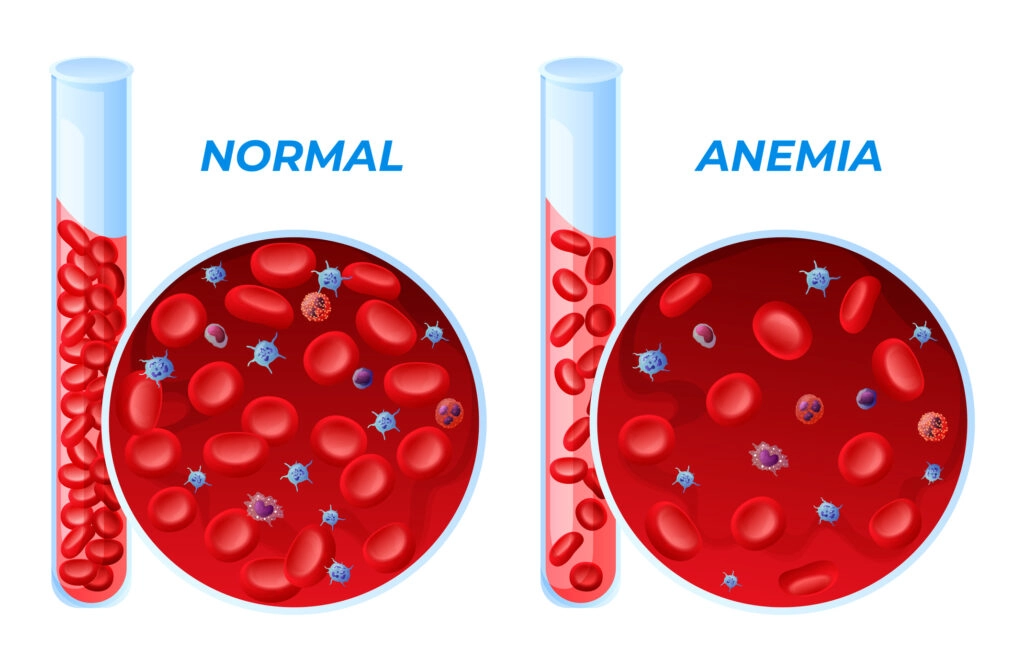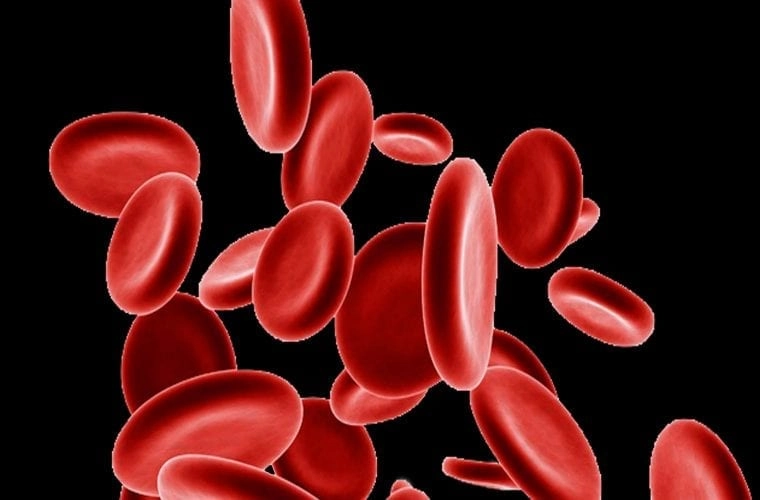Anemia and its relation to fertility
Healthy food provides the body with vitamins and minerals necessary for the body's organs, including the reproductive system,
and a deficiency in any of them, whether in the husband or wife, leads to delayed pregnancy.
iron deficiency has been linked to infertility, miscarriage, low birth weight, and preterm labour
Even if you are iron insufficient and manage to become pregnant, the lack of oxygen delivery affects the baby’s development,
prevents proper placental development, and increases the rates of miscarriage and preterm birth
Among the causes of iron deficiency:
- Malnutrition
- Malaria
- Blood diseases
- Diseases of the immune system.
Symptoms of anemia: General fatigue and exhaustion; palpitations; Dizziness; Cold extremities and pale skin.
Anemia and its relationship to pregnancy:
Anemia leads to delayed pregnancy, especially if it is caused by iron deficiency.
How is that?
Where if the iron, which plays a role in the formation of hemoglobin, decreases, the number of red blood cells will decrease,
which leads to a decrease in the amount of oxygen reaching the organs of the body such as the ovaries (because the body gives
priority to the distribution of oxygen to vital organs such as the brain and the heart) and this leads to poor ovulation,
i.e., failure to produce eggs and thus no pregnancy.
Iron is also one of the most important minerals necessary for the formation of sperms.
heme Vs. Non-Heme
Heme iron is the more easily absorbed form of iron, and is typically found in animal sources. Non-heme iron is more difficult
for your body to absorb, and comes from plant-based sources. Although heme iron is more absorbable, research to date shows
more benefit of non-heme iron when it comes to improving ovulation
to ensure you are absorbing as much iron as possible (whether heme or non-heme), it’s important to pair iron with nutrients
that boost its absorption. For example, vitamin C, B12, and folate
women who supplement with iron regularly decrease their risk of infertility by 40%1. Moreover, women who take more than 41 mg
of iron per day decrease their risk of infertility by 62%1
range for ferritin, values ranging from approximately 20 – 200 ng per mL in women
Avoid anemia by maintaining a healthy diet, such as eating vegetables and chicken which is rich in iron, lemon and tomatoes
because they contain vitamin C (which helps iron absorption), and reduce coffee and tea intake.
Blood type and its effect on female fertility
There are four main blood types: O, A, B and AB. Your genetic makeup and proteins on the surface of your red blood cells
determine your blood type
What is the least fertile blood group?
Studies have shown that women with O blood type are at a greater risk of depleting healthy eggs faster than others and
therefore find it difficult to conceive.
Why?
Because the quality and number of eggs in women with blood group O is lower - according to studies - than women with other
blood types (especially blood type A), as the hormone FSH (ovulation stimulator) is higher for them than their counterparts,
which indicates a decline in the ovarian reserve .
Immune Response: they have found that type O people have an imbalanced immune reaction that could affect implantation,
especially in IVF treatments. This could account for poorer IVF outcomes in women with type O blood.
A woman's balance of eggs is her fertility balance. And the O blood type indicates a decrease in its balance compared to
other blood groups. This leads to a change in the thinking of women when they start to establish a family based on the blood type.
regardless of your blood type, a healthy diet and lifestyle is critical for fertility, conception, and pregnancy. We may
never be able to control every possible factor related to our fertility. However, we can take charge of the foods we eat
and how we live, and that can make all the difference







 Pregnancy Due Date Calculator
Pregnancy Due Date Calculator
 Chinese Gender Predictor
Chinese Gender Predictor
 Ovulation Calculator
Ovulation Calculator
 IVF Due Date Calculator
IVF Due Date Calculator
